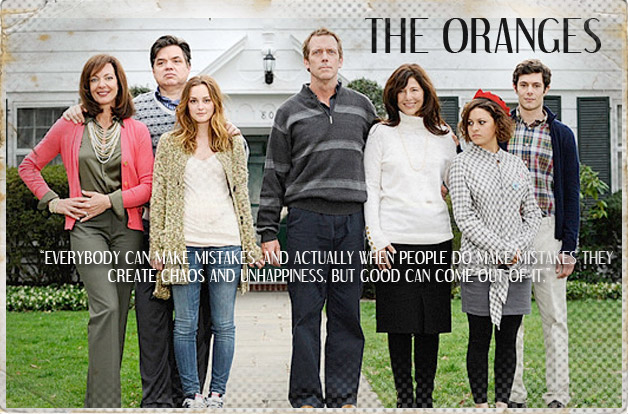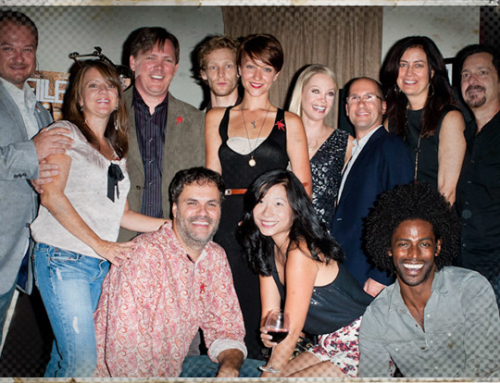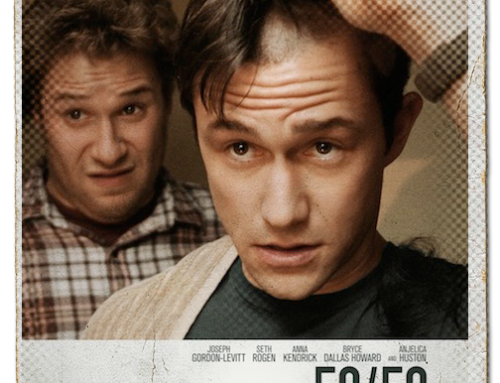Text by Maya Chendke
09/13/11
Everyone loves a hearty tale of inappropriate love/adultery. Normally, it’s a question of projecting yourself into said moral dilemma by vilifying the wrong-doers, cooing for the saintly spouse, and shaking your head at the unfortunate mistakes others choose to selfishly make.
But sometimes, as I learned from watching The Oranges, life doesn’t quite swing in this pattern and you really may shock yourself by which “side” you sympathize with.
This tightly-packaged tale is set in average-town New Jersey, nicknamed “The Oranges” (like “The Vegas” or “The Bronx,” nothing to do with produce so don’t get fixated on the name). Two best friends (Oliver Platt and Hugh Laurie) live across the street from each other and lead the McLife with their grown up McFamilies. You know, Sunday night dinners, BBQ fests, morning power walks…and a bizarre affair.
Cue the entrance of Leighton Meester’s character, Nina. At this point, all the whispering around me in the screening of the film centred on chastising the “home wrecker” and “whore” (as expected). Nina is the kind of character that smells like trouble, from a mile away, in an airtight container. Gamma rays of trouble seep from her porcelain pores.
But what’s surprising is–if you pay attention– you start to see dimensions in the chemistry with her dad’s best friend that makes you understand their inappropriate relationship.
You didn’t read wrong: dad’s best friend.
“Everybody can make mistakes. And actually when people do make mistakes they create chaos and unhappiness, but good can come out of it,” says director Julian Farino. “We’re all capable of restoring ourselves and we’re capable of change. It’s meant to be a very affirmative movie, so it was important that we didn’t have a bad guy in it, no villain, no person to hate. Everyone was supposed to be likeable.”

How do a 50 year old man (Laurie playing David) and a pretty young thing end up frolicking together? Because Farino takes loneliness and dissatisfaction with your McLife to a whole new level, and not in a freaky, depressing kind of way. The average tales of affairs and mid-life-crises deal with a frigid spouse, an unfulfilling career, a sexpot seduction…and the descent into primal madness. But what these two characters bring out in each other is a vulnerability and sadness that is hidden beneath layers and layers of “face the world with a fake smile on your face as you get in your Prius.”
“The idea was that there was no judgment in any of the characters. The story begs you to make a judgment, and then the trick of the movie makes you go against your expectations of that,” says Farino.
There’s the saying that like attracts like, so it becomes palpable why heavy, knowing glances bring these two together. What Nina and David share is the common thread of being detached from themselves. They are drawn in by their mutual rejection of the surface layer of life, and bond by reviving feelings of excitement and affection received from another human being. Although around their families, they are each lonely, distracted souls at their core. And yet beneath the fun of a shiny new lover, each begins to explore the loneliness of not being in tune with themselves as individuals.
By proxy, their inappropriate set up forces the members of each family to take the same journey, and acknowledge that the surface layer of life is simply not enough. Yes, things get awkward and comical (particularly when Nina lives with David and his daughter…Nina’s former best friend). Allison Janney and Oliver Platt knock the comic timing aspect out of the park, and newcomer Alia Shawkat has a natural candid pulse that makes the ensemble click. Although every character has delightful comic elements, the basis of what each has to explore is not only how they live, but also why they would choose to move forward.
“It was about out of chaos, you know, can come something good. What appears disastrous in lives can actually be a force of good,” says Farino. “Allowing hope, was for me, the truest reflection of what I felt the audience had gone through watching the movie.”











